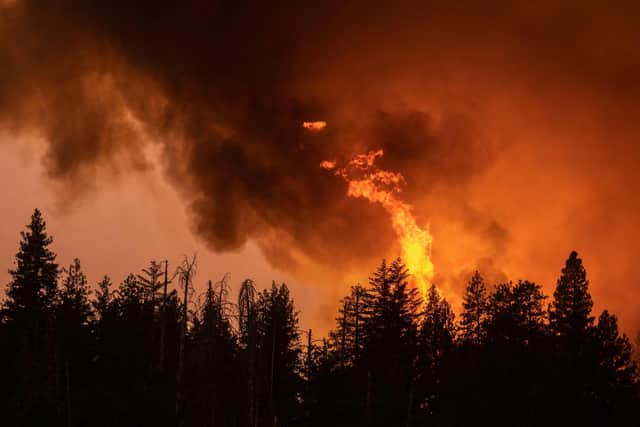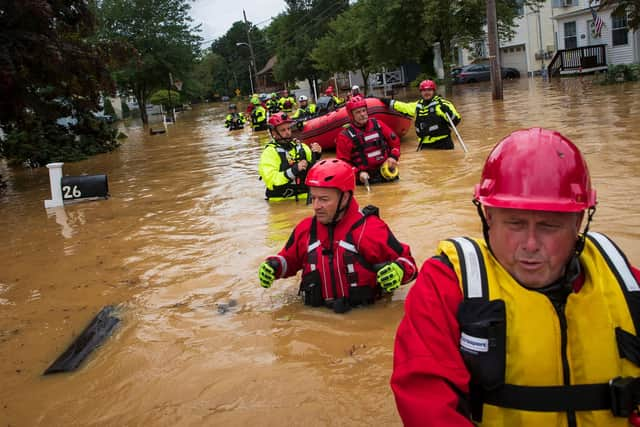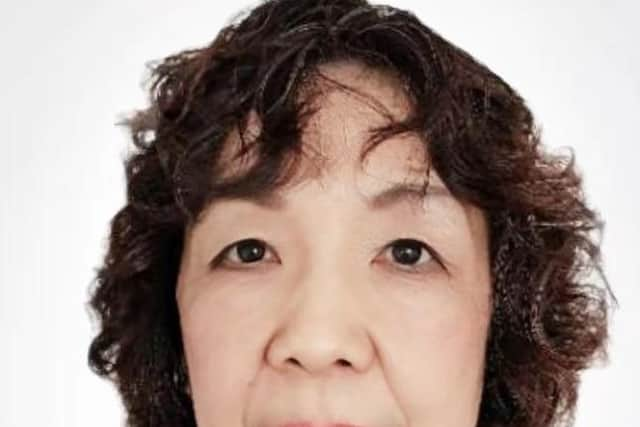COP27: World leaders warned planet is 'doomed' if political differences can't be put aside for UN climate summit
The United Nations summit COP27 is due to get underway in host country Egypt on Sunday, when the country will take over the COP presidency from the UK and partner Italy. The key message for the negotiations is ‘implementation’ – urging action across prior emissions reduction and financing pledges, with a focus on protecting people from the immediate impacts of a warming world.
The latest round of talks comes in particularly turbulent times. The economic and political situation is highly challenging, with the shockwaves from the ongoing impacts of the Covid pandemic, war in Ukraine, and rocketing food and energy costs being felt across the globe. Now, as leaders prepare to gather for the conference in Sharm El Sheikh, Dr Janet Liao, a senior lecturer in international politics at the University of Dundee, says the fate of the planet is hanging in the balance.
Advertisement
Hide AdAdvertisement
Hide AdShe says divisions brought about by Russia’s invasion of Ukraine could thwart efforts to achieve a consensus on how to proceed to achieve the goals set out in the Paris Agreement and last year’s Glasgow Pact. The relationship between China and the United States – the world’s two largest polluters – has become increasingly strained due to the war, as well as Washington’s support for Taiwan, while Europe is wrestling with the prospect of a winter of gas shortages.
“COP27 is expected to boost support for adaptation to the inevitable impacts of climate change, along with the necessary financial support, and to enhance national emissions-reduction targets to keep the 1.5C commitment within reach,” Dr Liao said.
“However, these being agreed are far from certain, largely due to the Russian invasion of Ukraine. On the one side, the war has triggered severe threats to European energy security, prompting the EU – the world leader in the fight against climate change – to revisit its energy strategy and to raise the possibility of using coal to help with the winter.
“On the other, the Russian-Ukraine war has intensified the US-China confrontations. Being the largest CO2 emitters, if the two countries do not co-operate on climate governance, the world will be doomed. So is COP27.”
A new report, released today, has echoed Dr Liao’s cautions. According to analysis by the Energy Transitions Commission (ETC) – an international think-tank focused on economic growth and climate change mitigation – existing pledges and commitments from countries fall short of what is required to limit global warming to 1.5C.


To have even a 50 per cent chance of meeting the Paris goal, the authors insist COP27 must “act as a catalyst” to turn broad national commitments into specific actions and pave the way to more forceful measures to phase out coal and end deforestation.
Lord Adair Turner, chair of the ETC, said: “Despite the current global economic and political challenges, we must keep focused on the global crises presented by climate change. Each 0.1C rise above 1.5C will have a hugely significant impact.
“Many of the actions needed to build greater energy security could also drive a faster transition to a more resilient and stable low-carbon economy. Both full implementation of COP26 commitments and further progress at COP27 are therefore essential if the world is to have a 50-50 chance of limiting global warming.”
Advertisement
Hide AdAdvertisement
Hide AdDr Liao has also expressed concern over the likelihood of securing the $6 trillion [£5.2 trillion] of funding needed by 2030 for developing countries to reach their climate targets. With just $11.3 billion [£9.9bn] pledged so far, there is a very long way to go. She said: “Again, as the world economy is still under the shadow of the Covid-19 pandemic, it will be extremely challenging to see how the financial support can be met, even with the involvement of the private sectors.”


Last year’s COP26 summit, hosted by the UK in Glasgow, was seen as one of the most important, with countries required to report how they would achieve the climate goals set out in Paris. However, its success has been called into question. While an agreement, the Glasgow Pact, was ultimately reached, wording on the use of coal in power stations has been criticised for being too weak.
The UK has come under fire in recent weeks amid its own political turmoil, with the Egyptian government warning against “backtracking from the global climate agenda”. The call came after Liz Truss announced during her short tenure as leader that she wouldn’t be taking part in COP27 and offered up 100 new licences for oil and gas in the North Sea as part of efforts to reduce dependency on foreign imports.
Dr Liao admits the plans to expand fossil fuel extraction in the UK does seem like “a mockery of climate targets”. But she said the move must be considered in the context of the “energy trilemma – sustainability, security and affordability”. She added: “Sustainability, the trigger, is something that the world should care about if we wish to save the earth from human-caused climate disasters. But when the low-carbon discourse conflicts with energy security and affordability, against the current energy shortage and high gas prices, there is a choice for politicians and the public on how things could be managed. To be sure, the UK and EU have been the world leaders in fighting against climate change over the past couple of decades, but many countries have had to withdraw from a more ambitious position at COP26 and turn to dirtier fuels, such as gas and coal, to help get through winter this year.”
Prime Minister Rishi Sunak’s attendance at the summit remains uncertain, after he said he would skip the conference to focus on economic issues at home. It has also been confirmed King Charles will not travel to Egypt, despite his long-time involvement in environmental issues – including speaking at the opening ceremonies at last year’s COP26 while he was still Prince of Wales. Instead he will host a COP27 reception at Buckingham Palace ahead of the event.


Teenage climate activist Greta Thunberg, who described COP26 to crowds in Glasgow as “a failure”, accusing leaders of more “blah, blah, blah”, is another key figure who will not be in Sharm El Sheikh. She said the talks had become a platform for attention-grabbing politicians and she would boycott this year’s “greenwashing” event. First Minister Nicola Sturgeon, ousted UK prime minister Boris Johnston and US President Joe Biden and climate envoy John Kerry, are expected to attend.
As leaders and negotiators prepare to meet again, Dr Liao said she believed there were many positive outcomes from Glasgow that could be built upon in Egypt. She said: “While there can be no doubting that there are many differences between the delegates attending COP27, there is hope that a focus on that single, fundamental goal could be decisive if our politicians really are determined to protect our planet for generations to come.”
Comments
Want to join the conversation? Please or to comment on this article.